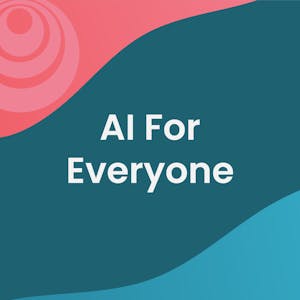ARM Cortex (STM32) Fundamentals: Building Embedded Systems
About this Course
Upon completing this course, you will: Master the use of floating-point data types and input/output handling in C. Understand and apply various operators and decision-making constructs in C programming. Execute advanced bitwise operations and control LEDs using embedded C. Achieve proficiency in bitwise manipulation and loop constructs for efficient code iteration and embedded system control. Course Description Embark on a comprehensive journey through ARM Cortex (STM32) Fundamentals: Building Embedded Systems. This course begins with essential data manipulation and input/output handling techniques, advancing your understanding of floating-point data types and versatile user input methods. Dive into operators and decision-making constructs, mastering for standardized integer types and honing skills in relational and logical operators. Explore the complexities of bitwise operations, enabling precise LED control through embedded C programming. Elevate your proficiency with bitwise manipulation, mastering loop constructs for efficient code iteration and intricate LED control sequences. By course end, you will possess the essential skills required for developing sophisticated embedded systems using ARM Cortex (STM32) technology. This course\'s unique focus on practical, hands-on applications and advanced techniques ensures you gain robust, real-world competencies in embedded systems development. Target Learners This course is ideal for: 1) Aspiring embedded systems engineers who want to gain a solid foundation in ARM Cortex (STM32) microcontroller programming. 2) Electronics and computer engineering students seeking practical experience in embedded systems. 3) Professional engineers looking to enhance their skills in embedded C programming and ARM Cortex (STM32) development. Prerequisites Before taking this course, learners should have: 1) Basic knowledge of C programming, including variables, data types, and basic control structures. 2) Familiarity with general computer programming concepts and logic. 3) An understanding of basic electronics principles, such as voltage, current, and circuit components. 4) A willingness to learn and experiment with embedded systems hardware and software.Created by: EDUCBA

Related Online Courses
In this course, you will learn the benefits and technical concepts of Amazon Timestream. If you are new to the service, you will learn how to start using Timestream through a demonstration on the... more
Introduction to Advanced Vibrations starts with a review of single and double degree of freedom systems. After that, multiple degrees of freedom systems are introduced to explain the vibrations of... more
This comprehensive course equips learners with the skills and knowledge to handle and respond to a wide range of cybersecurity incidents. From foundational concepts in information security to... more
AI is not only for engineers. If you want your organization to become better at using AI, this is the course to tell everyone--especially your non-technical colleagues--to take. In this course, you... more
Did you know that the global AI market size is projected to reach $997.77 billion by 2028? As AI technologies rapidly integrate into every sector, understanding their ethical and regulatory... more







